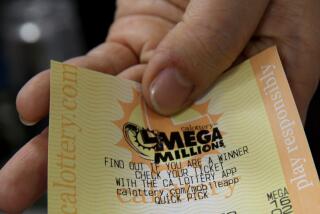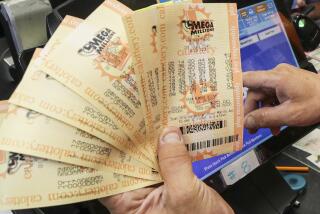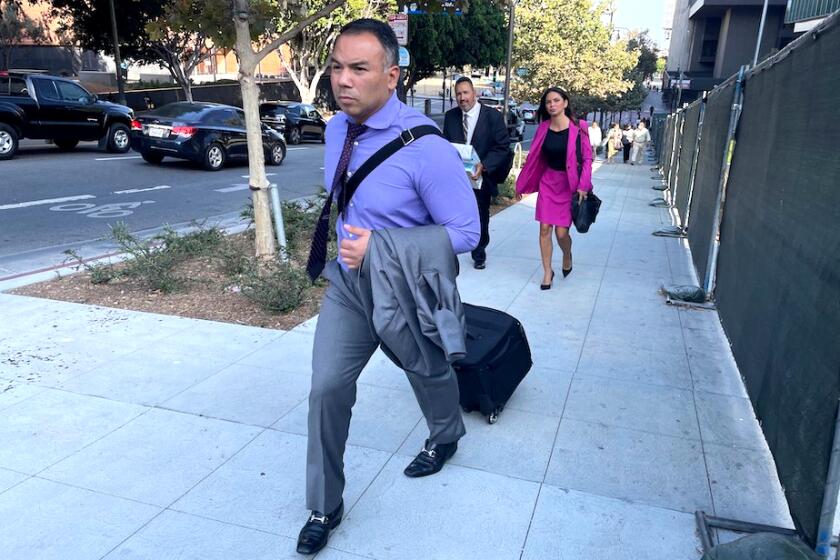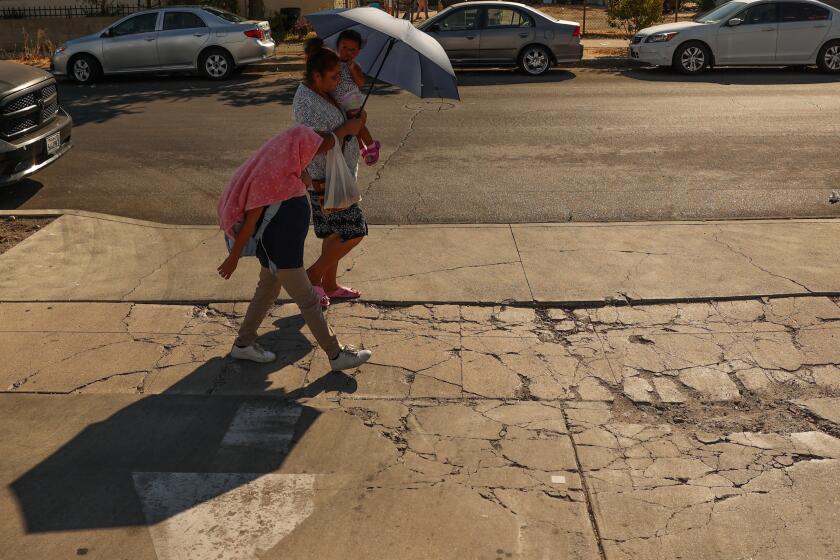From the Archives: Congrats, you’ve just won the lottery. Now hide.
On Wednesday, three tickets proved winners in a record $1.5-billion Powerball jackpot. When The Times covered the record-setting $587.5-million jackpot in 2012, reporter Joseph Serna had this warning for potential winners.
There are a lot of things you can buy with $192 million in Arizona, but anonymity isn’t one of them.
As the Times reported Monday, Matthew Good of Fountain Hills, Ariz., purchased one of the two winning Powerball tickets for the record-setting $587.5-million jackpot two weeks ago. Though Good wanted to remain anonymous, he bought his ticket in his home state, so he didn’t have a choice.
Because lotteries like Powerball, which is played in 43 (including California starting in April) -- are state-run, there’s an argument to be made that the more transparency, the better.
But at what cost to the people who win? The story of Florida’s Abraham Shakespeare, who won $17 million, is an extreme example. Shakespeare, 42, was conned and eventually killed for what remained of his winnings.
See more of our top stories on Facebook >>
Other winners suffer less drastic yet significant repercussions. Winners are pursued by organizations seeking donations, “relatives” begging for money or are simply swindled out of their money by greedy financial advisors.
“There is such a huge conflict of interest between the people who run the lottery and the people who win the lottery,” said Andrew Stoltmann, a Chicago securities attorney who has represented five winners who eventually became victims of their lucky break. “The single best commercial the lottery has is that new winner holding up a ginormous multimillion-dollar check. It’s great. It’s everybody’s dream. Once that person is exposed, he or she is the most heavily stalked person, by legitimate and illegitimate financial professionals.”
Only six states allow winners to be anonymous. Others offer exceptions for circumstances from domestic issues to protecting peace officers.
In California, you don’t have a choice. There’s a handbook given to winners that explains how their lives are about to change, but that’s about as far as the advice goes. Lottery officials said even when winners understand that their names are public record, requests to not publicize the names are denied and the names are put on a press release.
“Most of the time, it is advisable to get it over with the press so that you don’t have one or more reporters following you around to get that ‘exclusive’ interview,” the state’s site advises winners.
But it’s not necessarily reporters that winners have to worry about.
There needs to be a balance. Transparency regarding the state lottery is necessary, but so is acknowledging that lottery winners, oftentimes less educated and less financially literate, are vulnerable.
In New Jersey, Democratic Assemblyman John Burzichelli is offering a possible solution. He has cosponsored a bill that offers winners up to a year of anonymity before they are identified. “An average person who has that good fortune may welcome a little time to get on their feet,” he said.
Transparency certainly has its merits. According to the California State Library, lotteries in the United States date to the country’s founding. And going back just as far was corruption. New Jersey legalized a state lottery in 1971, the third state to do so after a 70-year hiatus nationwide.
But as Burzichelli points out, the jackpots these days are different.
“Lotteries then were exciting and novel; now it can be positively life-changing,” Burzichelli said. “It was one state; I think a three-number game. Now we have these multiple state Powerballs with $400 million to $500 million pots.”
As Chuck Baumann, a spokesman for the Oregon Lottery, put it, when your name is public, “you can run but you can’t hide.”
He’s right. But at least give the winner a head start.
More to Read
Sign up for Essential California
The most important California stories and recommendations in your inbox every morning.
You may occasionally receive promotional content from the Los Angeles Times.











